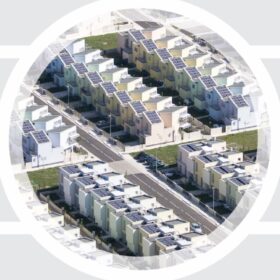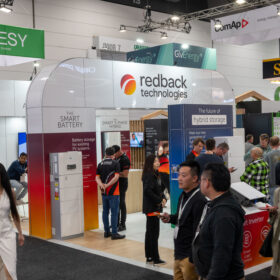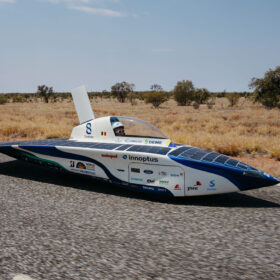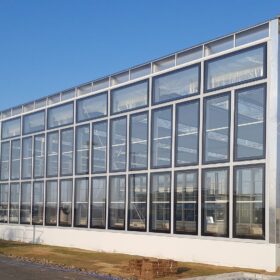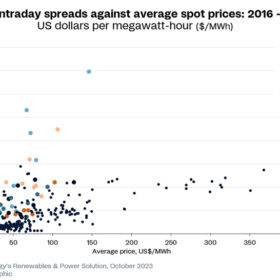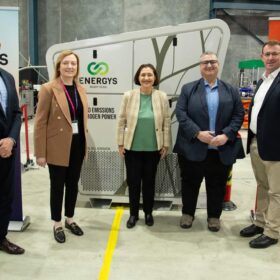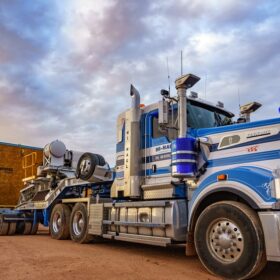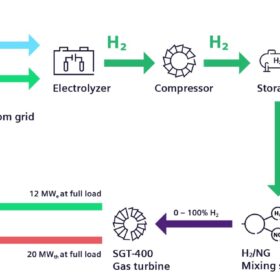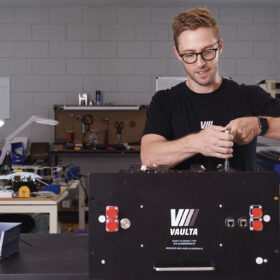Strategies to develop ‘solar neighborhoods’
Researchers from the Australian PV Institute are part of an international group of scientists that have devised a list of recommendations to support the creation of solar neighborhoods. In a recently published study they highlight the importance of legislative frameworks and advanced computing.
Redback offers early look at latest hybrid battery during All-Energy
Queensland battery company Redback Technologies offered a first look at its latest generation hybrid battery storage product at All-Energy this week, flagging it will offer special discounts to early customers when the product officially hits the market in Q2, 2024.
Belgians beat wind to claim World Solar Challenge
Belgian Solar Team Innoptus has claimed back-to-back Bridgestone World Solar Challenge titles, beating home dozens of competitors from around the world to win the 3,000 kilometre race through Australia’s outback.
ClearVue teams with Alpha Investment to commercialise solar glass tech
Solar glass manufacturer ClearVue Technologies is poised to accelerate its global expansion plans and further the commercialisation of its technology after locking in a $30 million (USD 19 million) funding facility with Australian fund manager Alpha Investment Partners.
Australia labelled world’s ‘most volatile’ electricity market
Australia’s power market is experiencing the most pricing fluctuations of anywhere in the world, according to research from Rystad Energy. This volatility is a result of unplanned coal plant outages, natural disasters impacting transmission lines, and high solar penetration pushing down midday prices.
Victorian-manufactured hydrogen gen-sets to provide backup power for five Telstra towers
Victorian hydrogen company Energys has unveiled its third-generation, locally-manufactured Hydrogen Fuel Cell Generators, five of which are to provide backup power for Telstra’s remote telecommunications towers as part of a Victorian pilot. The company says it is already constructing a green hydrogen generation plant too, supported by funding from the Victorian government.
Flexible demand standards for pools introduced in the US
To help balance variable renewable generation, California has set flexible demand standards for pool controls. The standards will help the state achieve its target of 7 GW of load flexibility by 2030 while saving consumers money.
Synchronous condensers to form heart of transmission project
Australia’s largest electricity transmission project EnergyConnect has taken another step towards completion with the arrival of two 120 MVA capacity synchronous condensers that will sit at the heart of the Buronga substation in western New South Wales.
Gas turbine driven by 100% renewable hydrogen for first time
The Siemens Energy-led Hyflexpower consortium has conducted a series of tests on a gas turbine located on the premises of Smurfit Kappa, a paper-based packaging supplier.
Weekend read: Australia-made batteries for easier repair, recycling
Brisbane-based Vaulta has developed a lighter, smaller battery casing with fewer parts, which makes it easier to assemble modules and repair faulty components. CEO Dominic Spooner argues that the company’s patented technology has the potential to significantly reduce battery waste.
